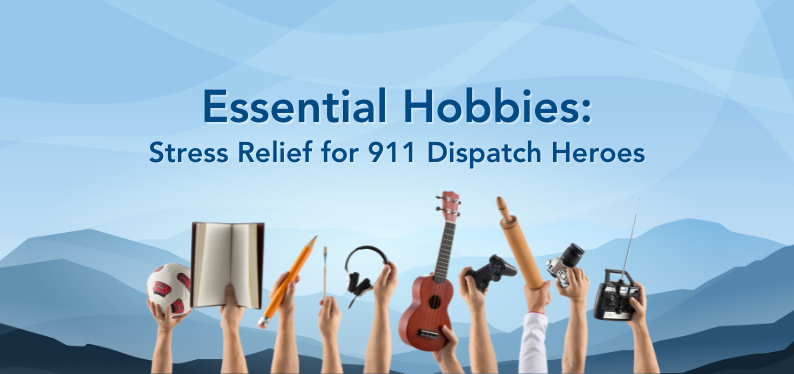The high-pressure environment of a 911 dispatch center demands quick thinking, precise communication, and the ability to manage stress effectively. Amid the demanding nature of the job, using hobbies as a means of destressing becomes not just a luxury, but a critical necessity. These personal pursuits contribute to overall well-being and resilience.
The Stressful Reality of 911 Dispatch Centers
1) On the Frontlines of Stress: Dispatchers deal with emergencies, crises, and life-or-death situations on a daily basis. The constant exposure to traumatic events can lead to significant stress and emotional fatigue.
2) Importance of Self-Care: As the first point of contact for those in need, dispatchers often prioritize others’ well-being over their own. However, self-care, including engaging in hobbies, is essential for maintaining mental and emotional health.
Harnessing Hobbies for Destressing
1) A Release from the Grind: Engaging in hobbies provides an avenue to shift focus from the pressure of work to activities that bring joy and relaxation. Whether it’s painting, reading, gardening, or playing an instrument, hobbies offer an escape from the demands of the job.
2) Stress Reduction: Scientifically, hobbies have been shown to lower stress hormones and induce relaxation. They stimulate the release of endorphins, fostering a sense of happiness and tranquility.
3) Recharging the Mind: Hobbies act as mental refuges, allowing dispatchers to recharge and return to their duties with a clearer mind and heightened resilience.
Tailoring Hobbies to Individual Needs
1) Personalization Matters: The beauty of hobbies lies in their diversity. Dispatchers should explore hobbies that resonate with their interests and preferences, ensuring they find genuine joy in the activities they pursue.
2) Balancing Passion and Rest: While hobbies can be deeply enjoyable, it’s essential to strike a balance between passionate engagement and allowing time for relaxation. Overcommitting can lead to additional stress, and thus be counterproductive.
Incorporating Hobbies into Daily Life
1) Allocating Time: Carve out dedicated time for hobbies each day. Even if it’s just a short period, consistent engagement can have a significant impact on destressing.
2) Workplace Support: Dispatch centers can encourage and support employees by fostering an environment that acknowledges the importance of hobbies for destressing. This can include flexible scheduling and designated spaces for relaxation.
Hobbies as a Long-Term Investment
1) Building Resilience: Engaging in hobbies builds emotional resilience over time. The ability to detach from stressors and immerse oneself in enjoyable activities can enhance coping mechanisms.
2) Enhancing Job Performance: By recharging and destressing through hobbies, dispatchers are better equipped to handle the challenges of their role with a clearer mind and a positive attitude.
In the demanding world of 911 dispatch centers, the use of hobbies as a means of destressing is not merely a luxury but a critical component of maintaining mental and emotional well-being. The act of engaging in activities that bring joy and relaxation contributes to stress reduction, mental clarity, and resilience. As dispatchers navigate the pressure of their roles, integrating hobbies into their routines serves as a valuable tool for maintaining balance, nurturing personal growth, and ultimately ensuring they continue to provide effective and compassionate support to those in need.


Recent Comments